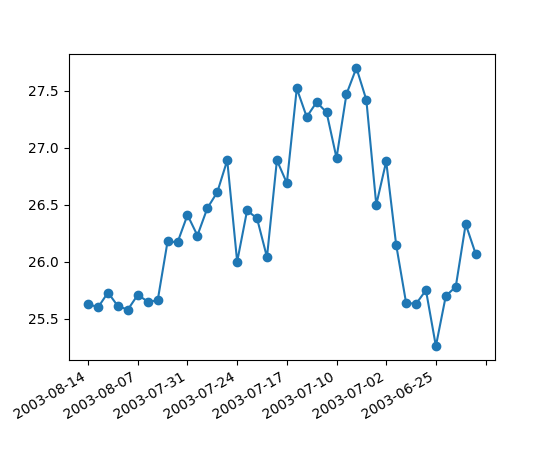
(Source code, png, pdf)

"""
When plotting daily data, a frequent request is to plot the data
ignoring skips, e.g., no extra spaces for weekends. This is particularly
common in financial time series, when you may have data for M-F and
not Sat, Sun and you don't want gaps in the x axis. The approach is
to simply use the integer index for the xdata and a custom tick
Formatter to get the appropriate date string for a given index.
"""
from __future__ import print_function
import numpy as np
from matplotlib.mlab import csv2rec
import matplotlib.pyplot as plt
import matplotlib.cbook as cbook
from matplotlib.ticker import Formatter
datafile = cbook.get_sample_data('msft.csv', asfileobj=False)
print('loading %s' % datafile)
r = csv2rec(datafile)[-40:]
class MyFormatter(Formatter):
def __init__(self, dates, fmt='%Y-%m-%d'):
self.dates = dates
self.fmt = fmt
def __call__(self, x, pos=0):
'Return the label for time x at position pos'
ind = int(np.round(x))
if ind >= len(self.dates) or ind < 0:
return ''
return self.dates[ind].strftime(self.fmt)
formatter = MyFormatter(r.date)
fig, ax = plt.subplots()
ax.xaxis.set_major_formatter(formatter)
ax.plot(np.arange(len(r)), r.close, 'o-')
fig.autofmt_xdate()
plt.show()
Keywords: python, matplotlib, pylab, example, codex (see Search examples)